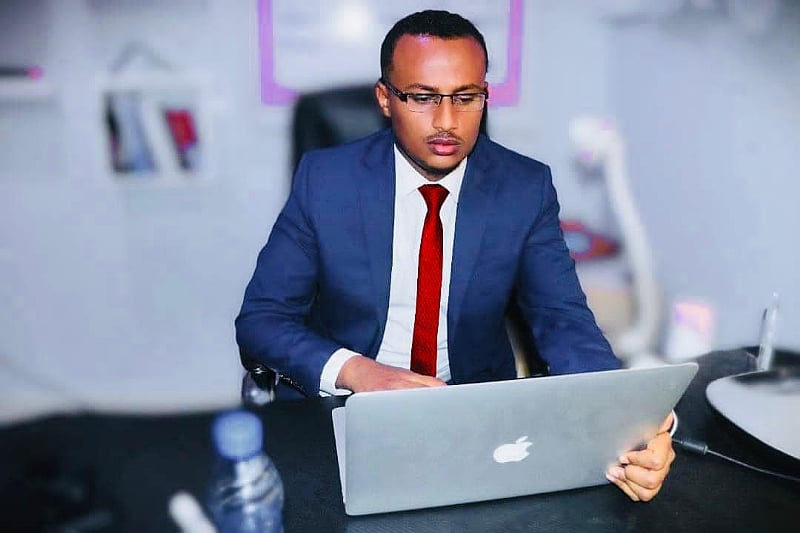If you had told me a few years ago that I’d be launching a finance education startup in a country where most people still think the stock market is for the elite, I might’ve laughed. But here we are. My name is Jibril Mohamed Ahmed, and I’m on a mission that’s as audacious as it sounds: To democratize finance in Africa, starting from a single street in Addis Ababa.
That street is Flamingo Street—the unassuming avenue where the newly minted Ethiopian Securities Exchange (ESX) and the Ethiopian Capital Market Authority (ECMA) are located. It’s Ethiopia’s financial Wall Street in the making. And when the bell rang at ESX’s opening, I knew what had to come next.
You see, ESX is now open for trading—but only through licensed brokers. And do you know how many everyday Ethiopians understand what that even means? Not many. But it’s not because they’re uneducated. It’s because they’ve never been given a real opportunity to learn.
The developed world understands stocks, equity, and capital markets because it taught them—through schools, TV, family conversations, and early access. We were never invited to that conversation. So I built SLab—short for Street Lab. A digital-first financial learning initiative made for everyone who was left out of that conversation. Especially those in rural towns, underserved communities, and distant regions like Somali, Afar, Gambella, and South Omo. Because I believe the stock market shouldn’t be a city privilege—it should be a national opportunity.
And our first goal is clear: Train the first batch of capital market brokers who speak the people’s language, come from the people’s realities, and will represent the people’s interests. At SLab, we’re not trying to build the next generation of suit-and-tie stock traders who only serve the wealthy. We’re building what we proudly call “The Wolves of Flamingo Street.”
They’re teachers, hustlers, university grads, entrepreneurs. Some have never heard of the NYSE or NASDAQ. But they understand hard work, they trust their instincts, and most importantly—they’re ready to learn. This isn’t about glorifying finance. It’s about unlocking access. About showing that wealth-building isn’t only for those born into privilege. It’s for anyone willing to learn and participate.
We’re starting small. But we’re dreaming big. And I believe that Ethiopia—and Africa at large—won’t just be consumers in the global financial system. We’ll be shapers of it. Yes, it’s a wild plan. But then again, so was ringing a bell on a dusty street in Addis Ababa and calling it a stock exchange.
And look how far we’ve come.


